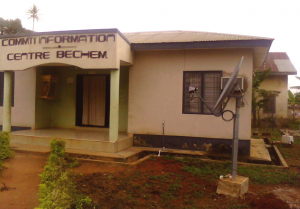
Photo Credit: 8th Biennial US-Africa Summit
While moderating a session at the just ended US-Africa Business Summit, the immediate past CEO of Commonwealth Telecommunications Organization (CTO), Dr. Ekwow Spio-Garbrah responded to a question from me about the experience of the panelists on the presence and administration of Universal Service and Access Fund (USAF) in the continent of Africa. In his response, Dr. Spio-Garbrah stated that “money is not the issue when it comes to extending broadband Internet to remote communities across the world for rural people to be able to participate in the information society”. In other words, there might be enough funds to support the deployment of broadband Internet to most rural communities that are currently not connected. So what does this mean to the ‘unconnected communities’? To know that there could be enough funds somewhere but due to the poor administration of the funds, poor management of the funds, or non-utilization of the funds, they are still being left out in the global Internet revolution.
I find the statement made by the moderator very interesting. I wonder if some of the key stakeholders on the panel such as the World Bank, Microsoft, and SEACOM really understood the implications of the statement. In other words, where do we put the blame? On the national governments; on the regulatory and policy environments; or on the telecommunication operating companies? I am wondering if these organizations or corporations are aware of the existence of USAF in some of the countries they are operating in Africa but have not exploited these funds in anyway to support their Puplic-Private-Partnership (PPP) activities. While almost all the panelists have argued that there is so much investment going into infrastructure, policies, applications/services, funding, and regulatory mechanisms to support African countries (in this context), why is it that the administration and management of USAF is still a challenge in most of these countries – at least the countries that have established the fund? What of other countries that have not even initiated USAF due to the poor telecommunication regulatory environment that exist in those countries?
In responding to my question (which was virtually avoided by the panelists), Dr. Spio-Garbrah gave a background to USAF by stating that most countries, through their regulatory bodies have applied a levy of between 1-5% of the total gross income of the operating telecommunication and mobile phone companies to establish USAF. This has resulted in the generation of a large volume of such funds all over the world, which has to be used to ensure access to broadband by all. He cited the World Bank’s estimate some years back about 10 billion dollars that was generated as a result of USAF. But unfortunately, this fund has not been adequately utilized, and in some countries lying down dormant. He stated that this fund is available and can be blended with World Bank funding, USAID funding, and private sector funding to be able to get the broadband to the rural people – the last mile. To get broadband to those who needed the Internet more to be able to perform their basic e-businesses and reduce traveling hundreds of miles to the nearby city once they have access to a simple $30 tablet.
So if it is true that ‘money is not the issue’, then why this picture – I mean the global picture. The under 40% global penetration of Internet – 30.2% to be specific based on the Internet World Statistics for March 2011? But of more interest to me, are the figures from the developing world – Africa, Asia, etc. Looking at the statistics from the figure below, there is no doubt that policy makers, regulators, governments, and donors need to work together to leverage their investments in the ICTs sector in order to benefit the ordinary citizen.

Credit: Internet World Statistics
This also reminds me of a European Union document that argues that despite the numerous success stories about the administration and use of USAF, there are equally a number of horrible stories. The document cited reasons such as funds that have been established in law but have not been operational as many as 5 years later. Others have determined levies, over-collected and under-spent. Still other funds are over spent by providing subsidies for unsuccessful projects, or for inefficient use in projects. Some have initiated projects but have not been able to coordinate them amongst different levels of government and different affected government departments. Some of the funds also have not made their collections and disbursements public on a periodic basis and have not held regular Board or Trustee meetings in order to facilitate project design, development and implementation. All these reasons boil down to the management and administration of the funds.
National governments in the developing nations have the opportunity to better utilize this fund through the GBI’s Universal Service & Access Funds Project which expands awareness/best practices, and provides technical assistance for both new and existing Funds. The GBI Program builds off of earlier successes in supporting USAFs in Asia and Africa through the Last Mile Initiative (LMI).
This blog is my reflection on a session titled “Talking to the Future: Bringing Global Broadband to the Doorsteps”, during the 8th Biennial U.S.-Africa Business Summit that was held between October 5-7, 2011 in Washington, DC, organized by the Corporate Council on Africa’s (CCA). Participants came from across the world – Africa, Europe, Asia and US.







































